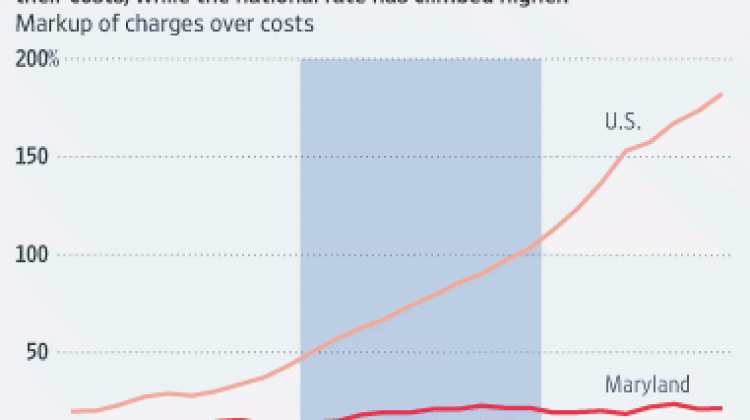How “Big Government” Can Keep Health Care Prices Low
It’s funny how the Republicans always say “big government isn’t the solution”, but there is a very real scenario to look at in this nation that proves just the opposite: While health care reformers argue about what it would take to “break the curve” of health care inflation, the state of Maryland has done it, […]

It’s funny how the Republicans always say “big government isn’t the solution”, but there is a very real scenario to look at in this nation that proves just the opposite:
While health care reformers argue about what it would take to “break the curve” of health care inflation, the state of Maryland has done it, at least when it comes to hospital spending.
In 1977, Maryland decided that, rather than leaving prices to the vagaries of a marketplace where insurers and hospitals negotiate behind closed doors, it would delegate the task of setting reimbursement rates for acute-care hospitals to an independent agency, the Maryland Health Services Cost Review Commission.
When setting rates, the Commission takes into account differences in labor markets and how much a hospital pays in wages; the amount of charity care the hospital does; and whether it treats a large number of severely ill patients. For example, the Commission sets the price of an overnight stay at St. Joseph Medical Center in suburban Towson at $984, while letting Johns Hopkins, in Baltimore Maryland, charge $1,555. For a basic chest X-ray, St. Joseph’s asks $81 and Hopkins’ is allowd to charge $155. The differences reflect Hopkins’s higher costs as a teaching hospital and the fact that it cares for generally sicker patients.
The private sector doesn’t set health care prices in Maryland, the state does. What has that meant for price? Well check out this graph:
That’s pretty amazing, and it proves that government’s “interference” can actually result in a much better system for the people, and Ezra Klein even sees this type system eventually being adopted nationally.







